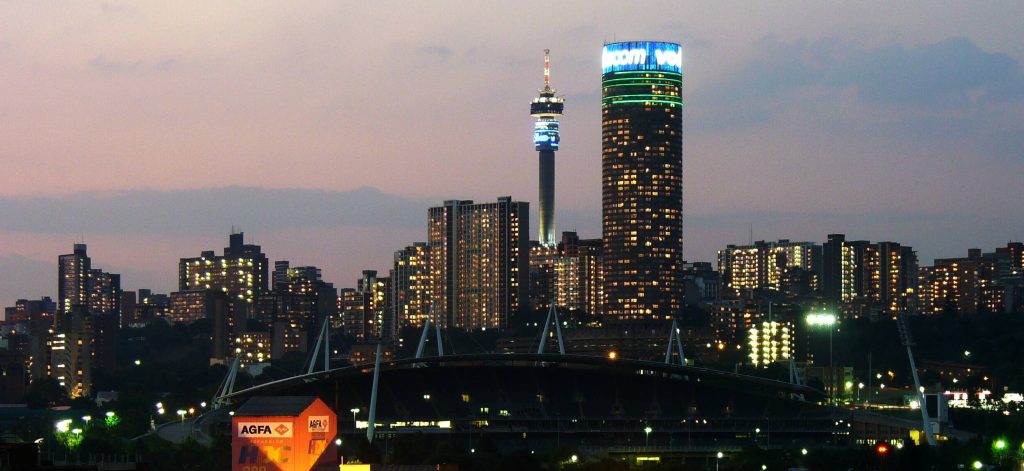- Joburg’s coalition collapses again, exposing deep political instability and governance paralysis in the metro.
- Minority parties split, weakening the Government of Local Unity and destabilising council decision-making processes.
- Leadership turmoil stalls key appointments and service delivery amid worsening infrastructure and financial crises.
- JoburgCAN urges bipartisan, accountable governance to refocus attention on residents’ needs, not political infighting.
Political instability is not new in the Johannesburg City Council, with the mayoral chain having swapped hands six times since the last local government elections in 2021. News has broken of another shake-up in the circus of break-ups, make-ups and set-ups that is the governance of Joburg, forming a distraction from the real problems of a metro in decline.
No party in the legislature holds an outright majority, so coalition deals and swapping sides can have a significant impact on who runs the City. At first, ActionSA partnered with the IFP, DA, FF Plus and ACDP, electing Dr Mpho Phalatse to power. It seems so long ago that we forget this was also thanks to the EFF, which was set on working against the ANC holding on to any metros. After two votes of no confidence, a court case, the first Dada Morero mayorship, Phalatse’s return, and a shake-up which saw the EFF cross the floor back to the ANC, we entered the era of the Council Kingmakers.
Minority parties, often with less than 1% of the vote and no ward councillor positions, make up the shaky middle ground needed by the bigger groups in order to vote for policy or positions, as a majority plus one is required and neither side can go it alone. To make these deals, positions like MMCs, Speaker, Section 79 chairpersons, or whips are used as bargaining chips. The EFF, to vote out Phalatse, refused to back an ANC mayor, so the three-seat party Al Jama-ah has had two of its members become mayor before ActionSA aligned to bring back Morero.
Instability is not just felt in the mayor’s seat, but in various offices — for example, the vital MMC for Finance has changed hands three times in just over a year — and the City has no manager.
This brings us to the current make-up of the ruling Government of Local Unity (GLU) coalition, which, according to news reports, has collapsed in messages seen from an internal WhatsApp group. Again, this should not be a surprise. The cracks have been showing since the unsuccessful vote of no confidence against Mayor Morero. ActionSA abstained to save the mayor, lost their Speaker position and three Section 79 committee positions, and then former Speaker Nobuhle Mthembu quit the party. Gwamanda, the former mayor from Al Jama-ah, warned the coalition could collapse if minority parties were not “shown respect” by giving him the vacant Finance or Transport MMC positions. Instead, they went to the ANC and reverted back to a PA member respectively.
A month ago, the council could not vote in a new Chief Whip of Council to replace the controversial Sithembiso Zungu, who is now MMC for Group Corporate and Shared Services. Forty-one ballots were spoiled as coalition partners and ANC members were disappointed a woman was not nominated, and the position went to another ANC councillor. The vote for a new City Manager was unsuccessful last week due to the minority party collective claiming the closed-session item was not what they had agreed to.
Now it appears even the minority parties are split. Six of the parties holding seven seats have left the literal and figurative WhatsApp group of the Minority Governing Parties (MGP), leaving four parties with six councillors to decide whether to split or realign. A letter allegedly written by Speaker Margaret Arnolds of the two-seat AIC states their departure from the agreement due to “irreconcilable differences” — or in other terms, they were not going to risk her Speaker position to try and get Al Jama-ah or others leadership roles. The ANC has stepped in to meet with the parties to try and rescue their coalition voting majority.
In the end, what does all of this actually mean? Really, it goes to show how entirely devoid of purpose and content the current City of Johannesburg Council is. Debates on spending, emergency allocations to help communities in the grips of a water crisis, and the urgent need for a new, non-political City Manager are all pushed down the agenda, while extraordinary additional meetings — at significant cost — have to be called to get through the impasse. We, as the residents of Johannesburg, have no credible leadership and nobody to hold accountable as the executive plays musical chairs. One would think parties would be doing everything they could to put their best foot forward ahead of the local government elections next year, but if the so-called Coalition Bill is passed, many of these smaller parties won’t make the threshold to return to council and are making hay while the sun shines — at our expense.
JoburgCAN consistently calls for transparent, bipartisan and accountable governance in the City of Joburg. This cannot happen when two arms of the system — the executive and the legislature — are disrupted or dysfunctional. The latest infighting is nothing new, but it is a distraction from the real work of addressing infrastructure breakdown and financial instability. We must focus on the fire, not the diverting smoke and mirrors.

